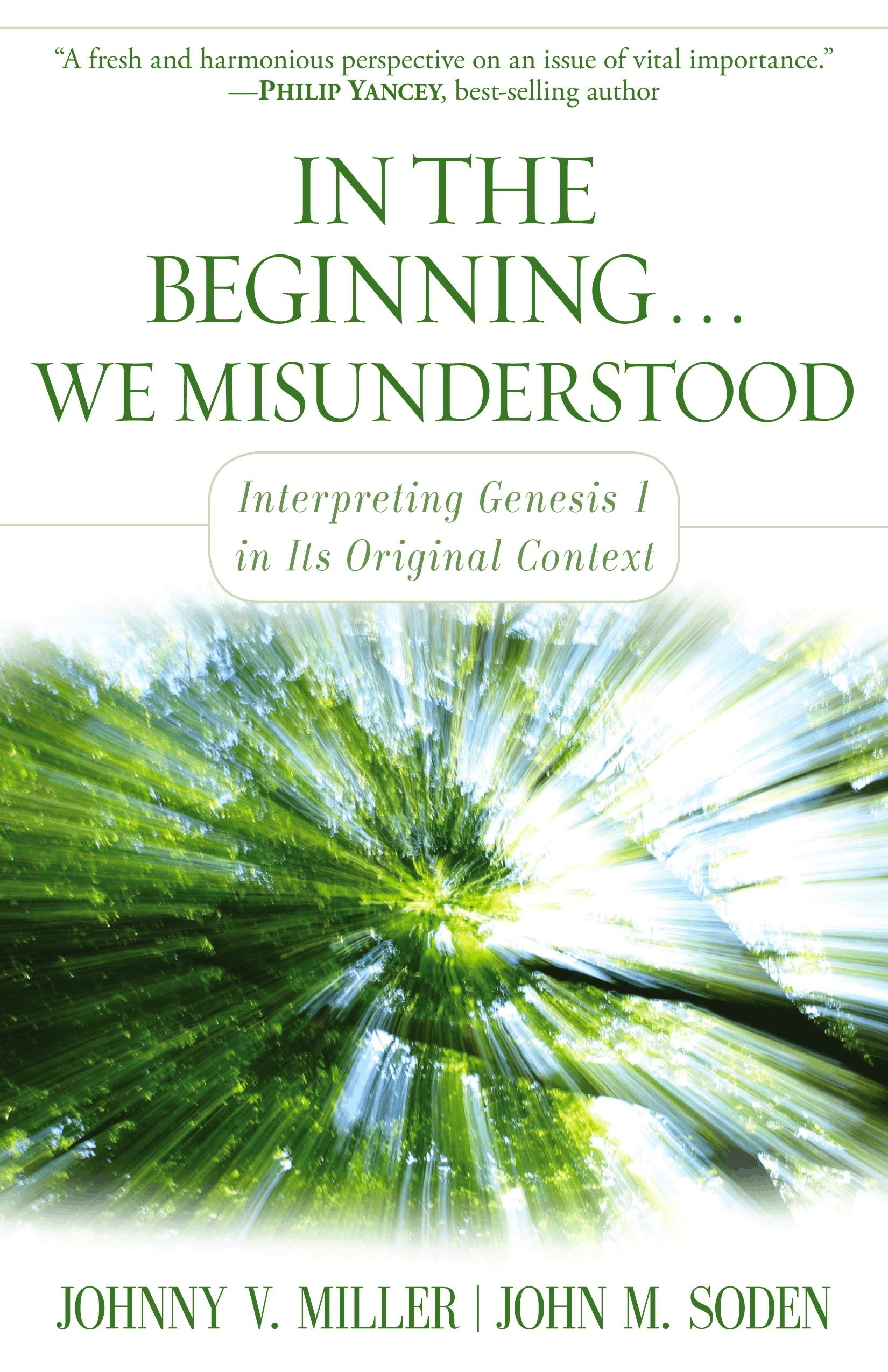
I've just finished reading Miller & Soden's 'In The Beginning ... We Misunderstood', which promised much but ultimately left me stronger in my view of a young earth, literal six day creation.
The book states that it seeks to interpret Genesis 1 as the ancient near-easterners did, the Exodus era Hebrews to whom Moses first presented Genesis.
In a nutshell it says that Genesis 1 is figurative, and that it 'recasts' Egyptian and Mesopotamian creation stories to show that Yahweh is the one true creation God.
The bottom line though is that this rips both the divinely inspired nature of Genesis, and the fundamental truth of Genesis from the foundation and heart of scripture.
While the authors claim that theirs is not an attempt to rewrite Genesis in light of modern scientific understanding, that science is not fixed, and that to force scripture to align with science is a fools errand, their flimsy theological arguments and assertions do suggest that their master is science and the theology is being made to fit. The same points are made repeatedly and are less argued than just stated.
I'm just a regular guy, but I feel strongly that regular people have just as much right to an opinion as 'educated theologians'. I do feel that I am in good company though. Soden and Miller say nothing about what the early Church fathers might have thought, and repeatedly imply that young earth creationism is more of a modern concept, popularised by the book The Genesis Flood by Henry Morris and John Whitcomb published in 1961.
This is a serious omission, but I can see why they chose not to, as the young earth, literal six day view of creation was the consensus view within the Church all the way through until and even well after The Enlightenment. Serious challenge to the literal reading of Genesis 1 is a very modern phenomena.
Miller and Soden make some interesting points about the numbering of the creation days - the first being 'one day' rather than 'first day' and the importance of the sixth day, as determined by it being 'the' sixth day. But these are minor points.
Fundamentally I think the reviewer on 'Thinking to Believe' has it right when he notes in passing that 'If Genesis 1 is a recasting of the Egyptian creation account, then no revelation would be required for Moses to write what he wrote. If God was inspiring the book, we would expect for God to make a theological point using actual history, not fabricated myths.'
And this gets to the heart of the matter.
Genesis is not just another creation story. It is THE creation story. Jesus believed it to be literally true, quoting Genesis 1:27, Genesis 2:24, and Genesis 5:2 in Matthew 19. Why would the early Hebrews believe Moses 'recasting' of the old stories? Jesus certainly wasn't scared of confronting pre-existing cultural norms, why would Moses, when under direct inspiration and regarding the then most important story ever to be told?
It does not surprise me that there are parallels between ancient creation stories and Genesis. Flood narratives abound because The Flood actually happened and that experience is seared into the memories of many ancient cultures, who preserved it in their own oral traditions and historic narratives. Likewise stories of the Creation.
Creation happened. Humanity's collective consciousness about the event will have carried it's shadow down the generations from Adam and Eve into the four corners of the Earth over the 2,500 years or more until Moses committed the truth of the event as God chose to share it - around the time of the Exodus.
No man witnessed creation, and The Bible does not say whether Adam and Eve were told about the events prior to their creation, but the stories of the pre-man world predated the revelation of Genesis, and this common consciousness will have informed many creation narratives.
Almost at the end of the book there is a quote from a friend of Johnny Miller's, a 'top-notch geneticist who retired from Cornell University. He had been an atheist most of his life, and said that even after becoming a Christian, for a long time he remained a “compromised” Christian and a theistic evolutionist. He wrote:
I am now a creationist. I am getting stronger and stronger scientific reasons to defend my position, but these are not the real basis of my faith. As I have studied Scripture I have seen that believing God is “counted as righteousness,” and that unbelief really is sin. Salvation comes from surrendering: 1) our will, 2) our heart, and 3) our mind to the Lord. Have you done step 3? Would you be willing to be a fool for Christ?'
And that sums up how I feel.
Useful resources:
Read the book on Scribd: https://www.scribd.com/book/323339414
Answers in Genesis article on the Early Church Fathers view on Creation.
Creation Ministries International rebuttal of Miller and Soden.
A review of the book on the Thinking to Believe blog which makes some interesting points, but who's view ultimately I disagree with.